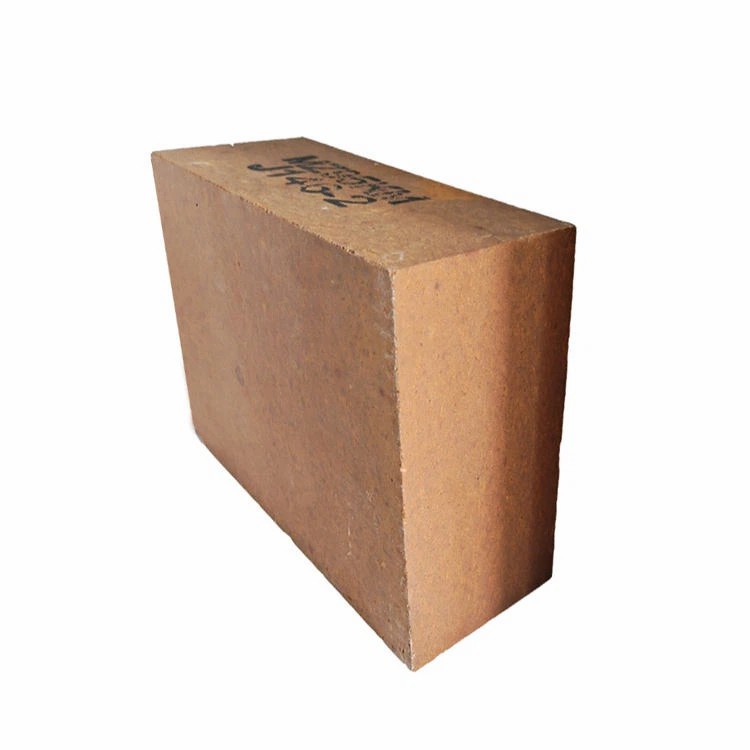PRODUCTS
Magnesite Brick
The linear expansion rate of magnesia bricks at 1000-1600℃ is generally 1.0%-2.0% and it is approximate or linear. Among refractory products the thermal conductivity of magnesia is second only to carbon-containing bricks which increases with the inc
Composition: Premium materials such as high alumina oxide, magnesium oxide, and silicon carbide, with customizable composition based on client requirements.
Form: Available in powder, brick, board, and castable forms to suit various application needs.
Refractoriness: Standard range from 1200°C to 1800°C, with options for higher temperature customization.
Application Fields: Widely used in industries such as steel, cement, glass, and petrochemicals for furnace lining and insulation.
Packaging: Options include 25 kg bags, bulk bags, and custom packaging solutions compliant with global transportation standards.
Introduction
Our experienced R&D team can customize the material, form, and size according to your specific application needs while ensuring compliance with international quality standards. With rigorous quality control and advanced production facilities, we guarantee products with high refractoriness, excellent compressive strength, and long-lasting durability. Whether you are in the steel, cement, glass, or petrochemical industry, we are your trusted partner, supporting the success of your projects.
For customization inquiries, please feel free to contact us. We will provide tailor-made solutions based on your requirements.
Magnesite Brick Details
The linear expansion rate of magnesia bricks at 1000-1600℃ is generally 1.0%-2.0%, and it is approximate or linear. Among refractory products, the thermal conductivity of magnesia is second only to carbon-containing bricks, which increases with the increase of temperature. reduce. Under the condition of 1100 ℃ water cooling, the number of thermal shocks is only 1 to 2 times. It has strong resistance to alkaline slag of CaO and ferrite, but weak resistance to acidic slag containing SiO2, so it cannot be in direct contact with silica bricks during use, and is generally separated by neutral bricks.
Features
1.High refractoriness. The refractoriness of magnesia brick is above 2000 degrees.
2.The softening temperature under load is high. The softening temperature under load is between 1500-1550 degrees.
3.Slag resistance. Strong resistance to alkaline slag such as CAO and FEO.
4.Thermal shock resistance. Can withstand 2-8 times
5.High temperature volume stability. The linear expansion coefficient of magnesia brick is large, and the volume stability at high temperature is poor, so enough expansion joints should be left during masonry.
Applications
Magnesia bricks are widely used in steelmaking furnace linings, ferroalloy furnaces, iron mixing furnaces, non-ferrous metallurgical industry furnaces, lime kilns for building materials, and glass industry regenerator lattices due to their good high temperature performance and strong resistance to alkaline slag. Heat exchangers, high temperature calcining kilns and tunnel kilns in the refractory industry, etc.
Physical And Chemical Indicators
|
Brand Properties |
MD92 |
MD95 |
MD97 |
MD98 |
|
|
Bulk density(g/cm3) |
2.90 |
2.95 |
3.00 |
3.00 |
|
|
Refractoriness under load T2 (ºC) |
1550 |
1650 |
1700 |
1700 |
|
|
Apparent Porosity (%) |
18 |
16 |
15 |
15 |
|
|
Cold Crushing Strength(MPa) |
55 |
60 |
70 |
80 |
|
|
Thermal shock resistance 950deg air cool (times) |
10 |
10 |
10 |
10 |
|
|
Composition(%) |
MGO |
92 |
95 |
97 |
97.5 |
|
CaO |
2.5 |
2.0 |
1.6 |
1.2 |
|
|
SiO2 |
3.5 |
2.5 |
1.2 |
0.6 |
|














